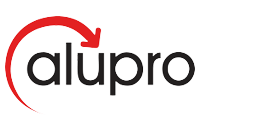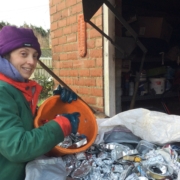Implementing an effective DRS – the challenges, opportunities and necessities
Tom Giddings, executive director of Alupro, discusses the official consultation response to the introduction of a DRS in England, Wales and Northern Ireland, outlines the views of the aluminium industry and explains what decisions need to be made moving forward to ensure the scheme achieves maximum impact.
Last month (January), the Department for Environment, Food and Rural Affairs (Defra), Welsh Government and Northern Ireland Department of Agriculture, Environment and Rural Affairs (DAERA), jointly published the official consultation response to the introduction of a deposit return scheme (DRS) in England, Wales and Northern Ireland.
Developed with the ambition of further driving recycling rates, as well as reducing litter and plastic pollution, the implementation of a well-designed scheme provides a once in a generation opportunity to revolutionise the circular economy of drinks containers.
Despite widespread anticipation, however, initial feedback was somewhat damning. Alongside flagging a significantly delayed introduction date (October 2025 – seven years after initially promised), environmental groups were openly dismissive of many of the proposals included within. From an aluminium perspective, we were similarly disappointed, highlighting the possible damaging consequences that could be created for the sector.
Probably the most contentious point was the decision to forego an ‘all-in’ system, which works well in many other successful schemes already operational internationally. Instead, the DRS implemented across England and Northern Ireland will exclude glass bottles entirely. Our concern here is that a ‘non-uniform’ approach creates an unnecessary driver for material switching away from infinitely recyclable packaging – such as aluminium beverage cans – and also increases the risk of fraud.
With the government’s own analysis of responses to the consultation highlighting that 70% of respondents supported including glass bottles within the scheme, it’s safe to say that the supply chain was frustrated about having its views seemingly ignored.
As an industry, we’re always looking for new and innovative solutions to increase recycling rates and embrace the circular packaging economy of tomorrow. The considered roll-out of a well-designed deposit return scheme has a real opportunity to contribute to this. Unfortunately, it looks possible that hugely disruptive market change will instead be seen, unless significant work is undertaken – and delivered quickly – to mitigate risks.
As we enter a period of discussion and collaboration regarding how best to roll-out the system, Alupro is engaging intensely with the government(s) and the emergent scheme administrator(s) to ensure that the system embraces all the elements needed for it to be a success. With the objectives of revolutionising waste management, we’ll be making the views of the aluminium industry heard.
Achieving maximum impact
While the consultation response may not have been quite as expected, we believe that the system still has potential to deliver upon its ambitions. That said, it’s now essential that a number of key decisions are made to avoid any further risks and ensure that the system achieves maximum impact.
This is not a throw away initiative for the short-term, it’s a major shake-up of policy, industry and recycling behaviour that will affect every part of the packaging supply chain, environmental groups and – most importantly – consumers. Unless we consider the implications and embrace best practice, we run the risk of making change for the sake of it; with minimal benefit and unnecessary cost.
Reflecting the views outlined within our pioneering Aluminium Manifesto (March ‘22), we therefore believe that the following four pillars are instrumental to achieving maximum impact from the introduction of a scheme across England, Wales and Northern Ireland:
• Securing a variable rate for the deposit – It is positive to see government leaving the door open for a variable rate deposit outside of Scotland, but this needs to be supported by a maximum deposit level that allows flexibility. A variable rate of deposit is instrumental to ensuring that the DRS doesn’t cause imbalance in the market for beverage containers sold in multipacks. It is also encouraging that the new scheme entering force in the Republic of Ireland in 2024 has embraced the variable rate of deposit which, if adopted in Northern Ireland too, will deliver cross-border alignment and make the scheme easier for consumers to participate in.
• A circular economy for materials involved in the scheme – Government must recognise that DRS is primarily a circular economy scheme, not an anti-litter one. It is imperative that collected material is accessible and available to the recyclers of aluminium packaging, as it is now. This means that, once collected, the scheme can facilitate the supply of new recycled aluminium cans. The recycling industry is looking to the UK, as the biggest market for cans in Europe, to lead the way in this respect and show that it is committed to its environmental aspirations.
• A fair and level playing field with targets across reforms – Ensuring that where beverage containers are not in scope of DRS, they meet equal collection and recycling targets under the EPR system at the same pace as those which are included. This also requires inclusion of beverage containers not obligated under DRS within the list of ‘bin litter’ under EPR.
• Recognising the role of consumer education – Government and the DMO should work closely with organisations such as Every Can Counts (ECC) to ensure that consumers can be educated of the changes on the horizon, with enough time to prepare. ECC has significant experience driving beverage can recycling through consumer engagement.
It may seem as though DRS has already missed an open goal, but all is not yet lost. That said, the next few months will prove pivotal in ensuring legislation is both robust and considered to deliver the maximum possible impact, albeit considering initial set-backs. Government(s) need to listen to the advice the supply chain is offering and must take it on board to ensure success.
We must work collaboratively to achieve this. Doing so is essential if we are to roll-out a DRS that both increases recycling rates and reduces litter – creating a system that works well and sets the international standards for success. The gauntlet has been thrown down – we’ll be waiting with bated breath to see the response.
To read the aluminium manifesto, visit www.alupro.org.uk/sustainability/manifesto.
ENDS



